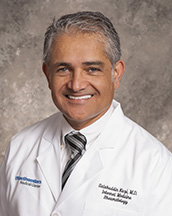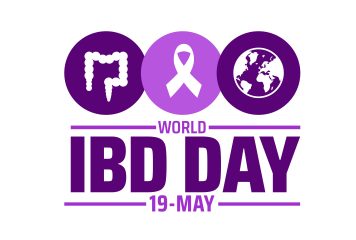
Chair, Rheumatology Board
The Rheumatology Board held its fall meeting on Tuesday, September 20, 2022. The fall agenda provided an opportunity to update the Rheumatology Board on activity at ABIM, and allowed for discussion of pressing issues in the field. The Specialty Board was joined by guests from the American College of Rheumatology (ACR).
The following is a summary of the fall meeting.
Leadership Update
Richard J. Baron, MD, President and Chief Executive Officer, ABIM
Dr. Baron presented an overview of ABIM’s progress on a number of fronts since the Rheumatology Board met in the spring, including:
- The continued success and growth in participation of the Longitudinal Knowledge Assessment (LKA®), noting that the LKA will also be made available in three new specialties—Critical Care Medicine, Infectious Disease and Pulmonary Disease—in 2023. Enrollment for all assessments opens on December 1, 2022.
- ABIM’s concentrated efforts in advancing diversity, equity and inclusion work streams, including research, listening sessions, staff trainings, cultural celebrations and analysis of ABIM’s programs and services, while addressing any inequities discovered.
- The ongoing campaign against medical misinformation, which remains a growing concern in the medical community. ABIM is actively working with organizations across the House of Medicine to build a comprehensive approach identifying strategies and tactics that can be employed to battle misinformation and promote accurate information.
Diversity, Equity and Inclusion (DEI) Update
The Rheumatology Board received an update on ABIM’s DEI work from Lorna Lynn, MD, Vice President of Medical Education Research; Kelly Rand, MA, CPH, Manager of Diversity and Health Equity; and Pamela Browner White, Senior Vice President of Communications and Chief DEI Officer.
Ongoing work in DEI includes a pilot program incorporating differential item functioning analysis in ABIM assessments, design of a study investigating the impact of patient race and ethnicity identifiers in assessment questions, developing health equity questions and reporting on the demographic characteristics of the internal medicine workforce.
Steven Echard, Executive Vice President of the American College of Rheumatology (ACR), reported that the society is funneling DEI work into their education, training and physician panels. Mr. Echard also noted that ACR has plans to move into workforce issues, focusing on physicians who are underrepresented in medicine in medical school and residency programs. Specialty Board members brought up the importance of inclusivity in gender identity and suggested expanding the options provided for physicians to self-identify. The group also discussed the need for more diverse leadership, and opportunities for diverse representation and modeling for younger clinicians.
Dobbs v. Jackson: Implications for Rheumatology
The Rheumatology Board held an open discussion on the implications of the 2022 Dobbs v. Jackson Women’s Health Organization ruling for the discipline of rheumatology, in particular those areas under the oversight of the Specialty Board, including training, assessments and stakeholder relationships within the rheumatology community.
Points of consideration from Specialty Board members centered around the interactions between rheumatic diseases and reproductive health, and treatments used in rheumatology that could impact pregnancy, most notably the effects of medications that can be teratogenic or induce an abortion. The Supreme Court’s decision has raised the need to train rheumatologists in effective communication around these issues, including the risks and benefits of specific treatment options, particularly for women.
American College of Rheumatology (ACR) Update
Steven Echard, Executive Vice President of ACR, provided an update to the Rheumatology Board regarding ACR’s strategic initiatives:
- Innovations in rheumatology
- Creating an inclusive voice
- The expansion and retention of the rheumatology workforce
ACR is currently implementing a content curation plan for its new learning management system (LMS), which allows for the continuation of medical education and maintenance of certification (MOC) opportunities. After the platform is launched, ACR has plans to upload virtual lectures to the LMS.
Maintenance of Certification (MOC) in 2023
The Rheumatology Board received an overview of upcoming MOC milestones from Natalie Trahey, Director of Program Operations, and Weifeng Weng, Ph.D., Director of Research Analysis. In January 2023, ABIM will resume evaluation of physicians’ certification status, following a two-year extension of MOC requirements for physicians in most disciplines due to the COVID-19 pandemic. (Critical Care Medicine, Infectious Disease and Pulmonary Disease received extensions through 2023 due to the disproportionate impact of COVID on physicians in those specialties.) The presenters shared information about the number of diplomates at risk of losing certification and provided an overview of the robust communications strategy aimed at building awareness of the upcoming deadline to minimize the number of diplomates who become not-certified. Communications include monthly targeted emails (June through January), highlighting opportunities to earn MOC points through society meetings and activities, UpToDate® and thousands of other Continuing Medical Education activities. Some early career physicians who have not yet been through an MOC cycle are at risk because of their lack of familiarity with the MOC process. ABIM recommends that all physicians sign into their personalized Physician Portal to check whether they have requirements due soon.
The presentation also highlighted a new opportunity for physicians with lifetime certificates—that is, those who initially became certified before 1990—to enroll in the LKA as a way to meet their 2023 assessment-due requirement in order to remain “Participating in MOC.” As a reminder, lifetime certificates are never at risk of losing certification for not participating in MOC.
Enrollment for ABIM assessments, including the LKA, the initial certification exam and the traditional, 10-year MOC exam, opens December 1, 2022.
Longitudinal Knowledge Assessment (LKA®) Update
Jeff Miller, ABIM’s Chief Information Officer, provided an update on the progress of the LKA since spring 2022, which included overwhelmingly positive feedback from participants. Of more than 5,100 diplomates surveyed, 91% of respondents reported that they found the LKA useful for learning, and 75% said they would recommend it to a colleague. ABIM will continue to gather data through interviews, a user panel, an in-depth study of learning and an annual survey. Several diplomates have shared their positive LKA experiences in short blog posts, reflecting on its flexibility, convenience and actionable feedback.
The Specialty Board then received a live demonstration of the LKA platform and user experience. (A video walk-through is also available online.) Among other things, it was pointed out that questions on the LKA expire each quarter, and that questions are “retired” from use so that diplomates will never see the same question twice if they continue in the LKA for multiple five-year cycles. This means that there is an emphasis on continually developing new items for the assessment, and underscores the importance of the Item-Writing Task Force (IWTF) responsible for writing questions. ABIM is actively seeking item-writers. Instructions and criteria for application can be found on ABIM’s website. A full list of all governance openings with application instructions can also be found online.
ABIM is analyzing large amounts of data gathered during the initial roll-out of the LKA, and working on optimizing the ongoing development of the assessment.
The LKA will become available for three new disciplines—Critical Care Medicine, Infectious Disease and Pulmonary Disease—in 2023; enrollment for the 2023 due year opens December 1, 2022, and the first round of questions will be released on January 1, 2023.
Update from the Rheumatology Approval Committees
Kevin McKown, MD, University of Wisconsin School of Medicine and Public Health; Rheumatology LKA Approval Committee
There are two ABIM Approval Committees working with the Rheumatology Board: the traditional, 10-year MOC exam Approval Committee (which also deals with the initial certification exam), and the LKA Approval Committee. Dr. McKown, representing both, described the meeting process and the committees’ interaction with the IWTF, and identified the committee’s current challenges and recent successes.
The Rheumatology Board discussed the IWTF and the challenges of writing items (questions) for the exams and the LKA. Item-writers are expected to produce about two items per month. There are currently 23 physicians in the Rheumatology IWTF group. Board members expressed concern that there may not be enough education, mentorship or opportunities to meet fellow item-writers, and that this may cause issues in retention and turnover. ABIM is actively exploring additional ways to enhance training, mentorship and engagement for item-writers, including recruitment of physician mentors and IWTF town hall meetings. Those interested are encouraged to apply to join one of the Approval Committees or become an item-writer.
In Closing
The Rheumatology Board values the feedback and commentary of the entire medical community, including diplomates and society partners.
Do you have any questions? Are you interested in getting involved?
If you have questions after reading this report, please connect with us through the following channels:
- Subscribe to the ABIM blog.
- Call 1-800-441-ABIM (2246).
- Email request@abim.org.
- Join our Governance to help guide our future direction.
- Join our Community Insights Network to share your feedback.



